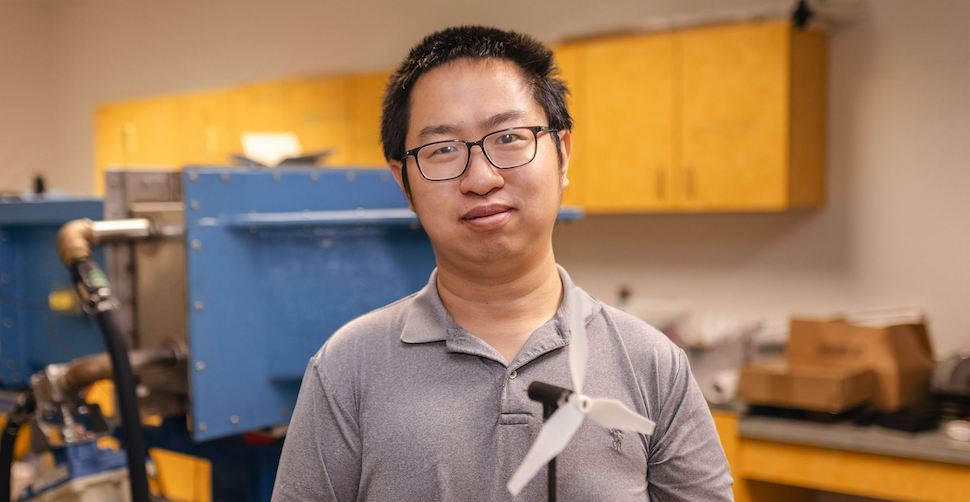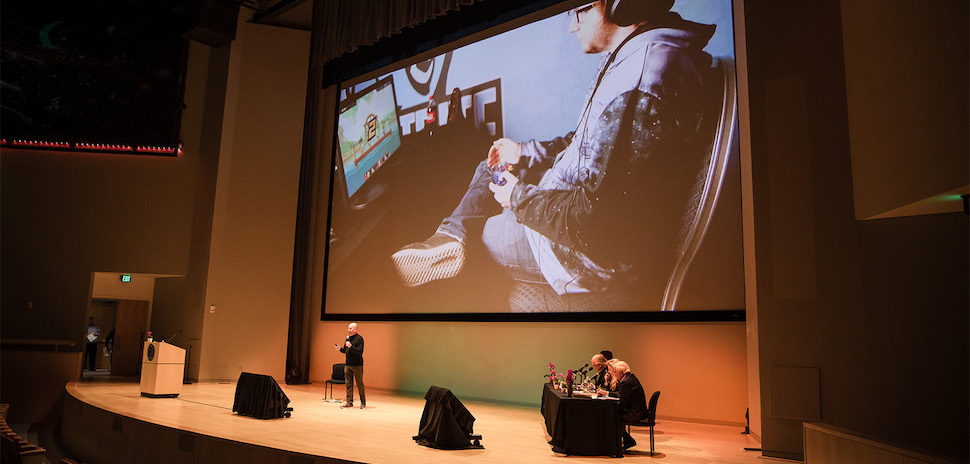Offshore wind turbines are a growing ingredient in the race to develop clean and renewable energy sources. But the turbines—which are attached to the ocean floor with cables and “float” on platforms high above—face risks from high winds and harsh storms that lash the open sea. UT Dallas Assistant Professor Dr. Yaqing Jin has found a potential solution inspired by an unlikely source: seal whiskers.
Seals hunt their prey with help from their highly sensitive whiskers, which detect vibrations in the sea around them. Jin used the “twisted cylinder” design of those whiskers to help develop a sensor to monitor turbulence in the deep ocean—with a goal of keeping both technicians and wind turbines safe in a storm.
“Those twisted cylinder shapes allow seals to sense changes in the ocean environment,” Jin said in a statement. “The same shapes can help us design sensors in the lab to detect changes in water flow that could warn offshore wind turbine operators about dangerous conditions.”
Jin was recently named an Early-Career Fellow of the Gulf Research Program of the National Academies of Sciences, Engineering, and Medicine for his research on offshore wind turbine safety, UTD said. He’s one of five fellows joining the Offshore Energy Safety Track, aimed at adding to the understanding, management, and reduction of systemic risk in offshore energy activities.
In his Fluids, Turbulence Control & Renewable Energy Lab at UTD, Jin and his research team test their “whisker-inspired designs” in a 6-foot-long clear rectangular water channel. A pump moves water into the tube at different velocities to simulate the ocean environment, the university said.
Sand blowing system tests impact on turbine blades
Jin’s lab at UTD includes a sand blowing system with adjustable particle volume fractions and sand ejection speed, enabling the study of how sand blowing in the air affects turbine or rotorcraft blades. That grabbed the attention of the military, too, since rotorcraft blades are a key technology in national defense. Earlier this year, Jin received a $360,000 Early Career Program Award from the U.S. Army Combat Capabilities Development Command Army Research Laboratory to test the impact of sand on rotating blades.
“With wind turbines, you don’t want the blades to bend,” he said. “If winds are too strong, the tower could break down. The risks for offshore turbines are even greater.”
Jin and two UTD co-authors published a 2023 study in the journal Physical Review Fluids that analyzed how 3D-printed seal whiskers responded when a target changed speed or direction. Their research was also featured in Physics magazine.
Joined UTD Wind in 2019
According to UTD, Jin joined the university in 2019 because of the its growing wind research programs through the Wind Energy Center, also called UTD Wind. Since then, he said he has seen an increase in students who want to prepare for careers in the wind energy industry, the university noted,
![]()
Get on the list.
Dallas Innovates, every day.
Sign up to keep your eye on what’s new and next in Dallas-Fort Worth, every day.






























